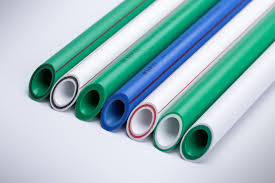Sep . 28, 2024 21:50 Back to list
Essential Kitchen Sink Water Line Products for Your Home Plumbing Needs
Understanding Kitchen Sink Water Lines Essential Products for Your Home
Kitchen sink water lines are a critical component in any household plumbing system. These lines are responsible for delivering fresh water to your kitchen sink and ensuring that you have access to clean, potable water for cooking, washing, and cleaning. Understanding the types of products available for kitchen sink water lines can help homeowners make informed choices, ensuring efficient and safe water delivery in their kitchens.
Types of Kitchen Sink Water Lines
There are several types of water lines commonly used for kitchen sinks. The most common materials include copper, PEX (cross-linked polyethylene), and PVC (polyvinyl chloride). Each material has its own advantages and disadvantages, making it important to choose the right one for your specific needs.
1. Copper Water Lines Copper piping is a traditional choice for water supply lines and is known for its durability and resistance to corrosion. Copper pipes can withstand high temperatures and pressures, making them suitable for various plumbing scenarios. However, they can be more expensive than other options and require soldering for installation, which can be a barrier for DIY enthusiasts.
2. PEX Water Lines PEX has become increasingly popular due to its flexibility, ease of installation, and resistance to freezing. Unlike rigid piping materials, PEX can easily bend around corners and obstacles, reducing the number of fittings required. Furthermore, PEX does not corrode or support bacterial growth, making it a safe choice for potable water delivery. Homeowners can also connect PEX pipes using simple crimp connections, making installations more straightforward.
3. PVC Water Lines While PVC is often used for drain, waste, and vent lines, it is important to note that it is not recommended for hot water supply due to its lower temperature tolerance. However, for cold water supply lines, PVC is a cost-effective and easy-to-install option. It is lightweight and can be cut easily, facilitating DIY projects.
kitchen sink water lines products

Choosing the Right Connectors and Fittings
In addition to selecting the right type of water line, the choice of connectors and fittings is crucial for ensuring a secure and leak-free installation. Some popular options for kitchen sink water line connections include compression fittings, threaded fittings, and push-fit fittings.
Compression fittings are reliable and provide a tight connection by compressing a ring around the pipe. Threaded fittings are useful when connecting different types of pipes or making adjustments. Push-fit fittings offer a quick and easy option for DIY plumbing projects, as they require no additional tools to secure the connection.
Maintenance Tips for Kitchen Sink Water Lines
Regular maintenance of your kitchen sink water lines can help prevent leaks and ensure the longevity of your plumbing system. Homeowners should periodically check for any signs of wear, such as frosting on pipe surfaces or damp spots under the sink. It’s also important to flush the lines to remove any sediment buildup that could compromise water flow.
In conclusion, understanding the various types of kitchen sink water lines and the associated products can greatly improve the efficiency and safety of your home’s plumbing system. By choosing the right materials, fittings, and maintaining them regularly, you can ensure a reliable water supply that meets all your kitchen needs. Whether you are planning a new installation or upgrading existing plumbing, being informed will empower you to make the best choices for your kitchen.
-
High-Quality PVC Borehole Pipes Durable & Versatile Pipe Solutions
NewsJul.08,2025
-
High-Quality PVC Perforated Pipes for Efficient Drainage Leading Manufacturers & Factories
NewsJul.08,2025
-
High-Quality PVC Borehole Pipes Durable Pipe Solutions by Leading Manufacturer
NewsJul.08,2025
-
High-Quality PVC Borehole Pipes Reliable PVC Pipe Manufacturer Solutions
NewsJul.07,2025
-
High-Quality UPVC Drain Pipes Durable HDPE & Drain Pipe Solutions
NewsJul.07,2025
-
High-Quality Conduit Pipes & HDPE Conduit Fittings Manufacturer Reliable Factory Supply
NewsJul.06,2025

